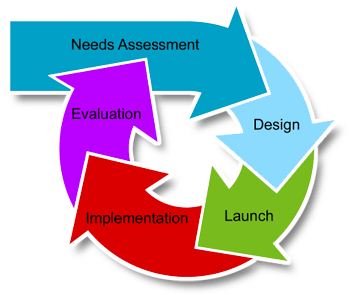Back to top
Indian Child Welfare Act (ICWA)
|
AAIA and NICWA Legal Guide to the Supreme Court Decision in Adoptive Couple v. Baby Girl
Includes summary of the case and legal analysis, including the impact of state statutes and tribal/state agreements. This document is designed to summarize the decision (what the case held about the Indian Child Welfare Act (ICWA), what it did not hold, and what it implied), and provide advocates for tribes, birth parents (particularly unwed fathers) and Indian children with possible responses to the decision.
|
The Indian Child Welfare Act (ICWA) was passed in 1978 to protect the best interests of Indian children and promote the stability of Indian tribes and families. ICWA provides minimum Federal standards for the removal of Indian children from their families and placement of these children in foster care or in adoptive homes that reflect Indian culture. ICWA applies in all child custody proceedings involving foster care placements, termination of parental rights, and pre-adoptive and adoptive placements. ICWA does not apply in divorce proceedings involving custody disputes.
The Indian Child Welfare Act was one of the five overarching themes or topic areas identified through the NRC4Tribes Needs Assessment Findings - Executive Summary and complete NRC4Tribes Needs Assessment Findings. The NRC4Tribes Needs Assessment includes a series of specific findings and recommendations concerning ICWA. Most tribes interviewed for the needs assessment reported that states and counties comply with ICWA by notifying them when member children are taken into the custody of these departments, and very few jurisdictional disputes were reported. However, many of those interviewed felt that, in general, state/county workers did not understand or correctly interpret ICWA, and that this created a barrier to collaborating successfully on ICWA cases. In addition, state/county workers often were seen as not accepting the need for ICWA and lacking awareness of important cultural aspects and tribal processes, such as enrollment.
Indian Child Welfare Act Work Issues and Needs
-
Development of tribal ICWA policies and procedures
-
Resources for more tribal workers dedicated to ICWA cases
-
Timely receipt of ICWA notifications from states and counties
-
Need for training of state and county workers on ICWA legal and practice aspects
-
Increasing state and county workers understanding of why ICWA is needed
-
Increasing understanding and awareness of tribes and reservation contexts on the part of state and county workers
-
Increased compliance with ICWA placement preferences, especially placement with extended family and other tribal kin
-
Widely differing perceptions on the parts of tribal and state/county child welfare staff regarding the quality and level of state/tribal collaboration and state ICWA compliance
-
Continuing adoption of tribal children by non-Indians in state and county courts
Indian Child Welfare Act - Chapter 21 PDF
 |
Indian Child Welfare Act (ICWA)
The Indian Child Welfare Act of 1978 had two overall purposes: (1) to affirm existing tribal authority to handle child protection cases involving Indian children and to establish a preference for exclusive tribal jurisdiction over these cases; (2) to regulate and set minimum standards for the handling of those cases remaining in state court and in state child social services agencies.
|
 |
NRC4Tribes Technical Assistance Needs Assessment: Indian Child Welfare Act
The NRC4Tribes Needs Assessment Findings - Executive Summary and complete NRC4Tribes Needs Assessment Findings include a series of specific findings and recommendations concerning Indian Child Welfare Act. See left column for resources.
|
 |
Background and Need for ICWA
In drafting the ICWA legislation, Congress found, among other things, “…that an alarmingly high percentage of Indian families are broken up by the removal, often unwarranted, of their children from them by nontribal public and private agencies and that an alarmingly high percentage of such children are placed in non-Indian foster or adoptive homes and institutions…” Clicking this link will allow you to view resources concerning why ICWA was and continues to be needed.
|
 |
Frequently Asked Questions (FAQs) concerning Indian Child Welfare Act
Frequently Asked Questions (FAQs) concerning Indian Child Welfare Act, that is, what are the most important issues concerning Indian Child Welfare Act Issues for State and Tribal Child Welfare Workers, State and Tribal Court Personnel, etc.
|
 |
U.S. Supreme Court decides ICWA Case
The United States Supreme Court agreed to hear an Indian Child Welfare Act of 1978 (ICWA) adoption case involving a South Carolina couple who were ordered by the South Carolina Supreme Court to turn over a 27-month-old girl to her biological father, a member of the Cherokee Nation of Oklahoma. Oral arguments for this ICWA case Adoptive Couple v. Baby Girl was held on April 16, 2013 with a decision made on June 25, 2013. More information and resources including court documents and amicus briefs.
|
 |
Fostering Connections website resources concerning Indian Child Welfare Act Issues
The www.FosteringConnections.org website is a gathering place of information, training and tools related to furthering the implementation of the Fostering Connections law. Specifically, this site aims to connect implementers with the latest information and the best experts and advocates working on these issues.
|
 |
ICWA Policies and Procedures
Policies and procedures strategically link an organizations vision and its day-to-day operations. Staff rely upon these extremely important documents to guide their various roles within the agency. Clicking this link will allow you to view resources concerning tribal and state ICWA policies and procedures.
|
 |
Bureau of Indian Affairs resources concerning Indian Child Welfare Act
The Bureau of Indian Affairs in the U.S. Department of the Interior has resources concerning Indian Child Welfare Act including those available through BIA Human Services Division.
|
 |
ICWA Tribal State Agreements
Nearly half of the tribes that participated in the needs assessment that currently have a tribal/state agreement felt that their agreements were working insofar as the tribe agreed with the terms, the agreement was consistently honored by the state, and the tribe and state worked collaboratively to serve Indian children and families in a culturally appropriate way. Clicking on this link will take you to the Child Welfare Collaborations page of this website
|
 |
ICWA Resources available through other organizations
Native American Rights Fund (NARF)
Native American Rights Fund (NARF) - ICWA Info
Native American Rights Fund (NARF)_Samuels-letter.pdf
National Congress of American Indians (NCAI)
Casey Family Programs
National Indian Child Welfare Association (NICWA)
National Council of Juvenile and Family Court Judges
TribalSTAR
|
 |
ICWA Compliance
According to the 2010 Needs Assessment compliance with ICWA provisions, on the part of states and counties, remains a problem in some jurisdictions, even more than 30 years after the passage of the Act.
|
 |
ICWA Notifications
The Bureau of Indian Affairs annually posts Indian Child Welfare Act; Designated Tribal Agents for Service of Notice regulations in the Federal Register.
|
 |
ICWA Qualified Expert Witness Resources
Title 25, United States Code, Section 1912(e) sets forth among other things that no foster placements may be ordered without affording testimony of a qualified expert witness that a parent’s or Indian custodian’s continued custody of the Indian child will result in serious emotional or physical damage. Clicking this link will allow you to view resources concerning ICWA Qualified Expert Witness.
|
|
|
Documents on this page may need Adobe Reader 
This site contains links to other web sites that may be of interest to you. The Administration for Children and Families (ACF) / Children's Bureau (CB) does not endorse the views expressed or the facts presented on these sites. Their contents are solely the responsibility of the authors and do not represent the official views or policies of the Children's Bureau. Access to this information does not in any way constitute an endorsement by the Department of Health and Human Services. Furthermore, ACF/CB does not endorse any commercial products.

